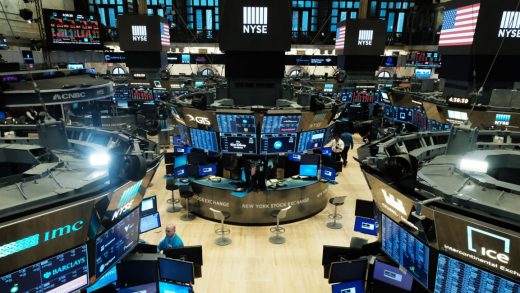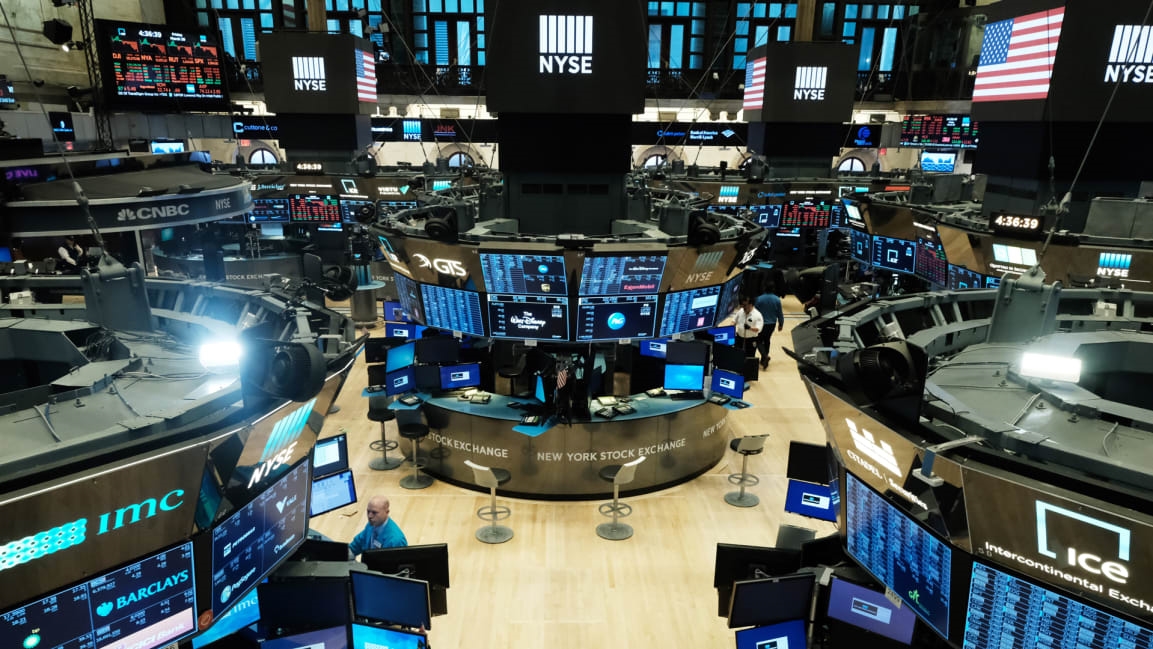Why an empty floor at the New York Stock Exchange will have little impact on trading
At 9:30 a.m. this morning, the opening bell rang in another day of trading at the New York Stock Exchange. But unlike every other trading day in the company’s 228-year history, its iconic trading floor—which typically houses hundreds of brokers crowding around computer screens, yelling, and juggling phone calls—was a ghost town.
The NYSE made the unprecedented call to shut its trading floor and move all trading operations online indefinitely, after two staffers affiliated with the floor tested positive for COVID-19.
The closure seems dramatic, but it’s expected to have little to no impact on the $28 trillion stock market.
Why? Because most global equity trading is already electronic. The NASDAQ was founded as the first electronic stock market in 1971; the London Stock Exchange abandoned its trading floor to shift to electronic trading in 1986, and the Tokyo Stock Exchange followed suit in 1999, among dozens of competitors.
The NYSE has conducted tests that show it can function fully electronically, and recent figures suggest only 20% of its buying and selling occurs through human brokers. But still the Big Board persisted, perpetuating the appearance that a physical floor plays a critical role in the action.
NYSE President Stacey Cunningham resisted the closure earlier, telling CNBC that human judgment on the floor reduces stock volatility. But market-stabilizing technology, such as circuit breakers that temporarily halt trading when markets plummet, is increasingly replicating the human effect.
It’s also argued that floor trading offers an advantage during closing auctions, which account for more than 6% of all trade volume. During closing auctions, floor brokers have the power to apply a Discretionary Order, or “D Order,” which allows an extra 10-15 minutes to tweak a customer’s stock order before the closing bell; these are only usable on the floor.
Aside from that, though, trading should remain mostly the same: Designated market makers, who provide liquidity by continuously buying and selling shares, will be working remotely, and IPOs can proceed as usual.
Even so, Wall Street stalwarts are mourning the move. A bustling trading floor demonstrated that America’s markets could not be beaten by coronavirus, but the emptying of the NYSE’s historic Lower Manhattan space feels like a resignation of sorts. NYSE vice chairman John Tuttle told Fortune that the floor will reopen eventually, when it “makes sense for the overall marketplace and the health and the well-being of market stakeholders.”
(18)



